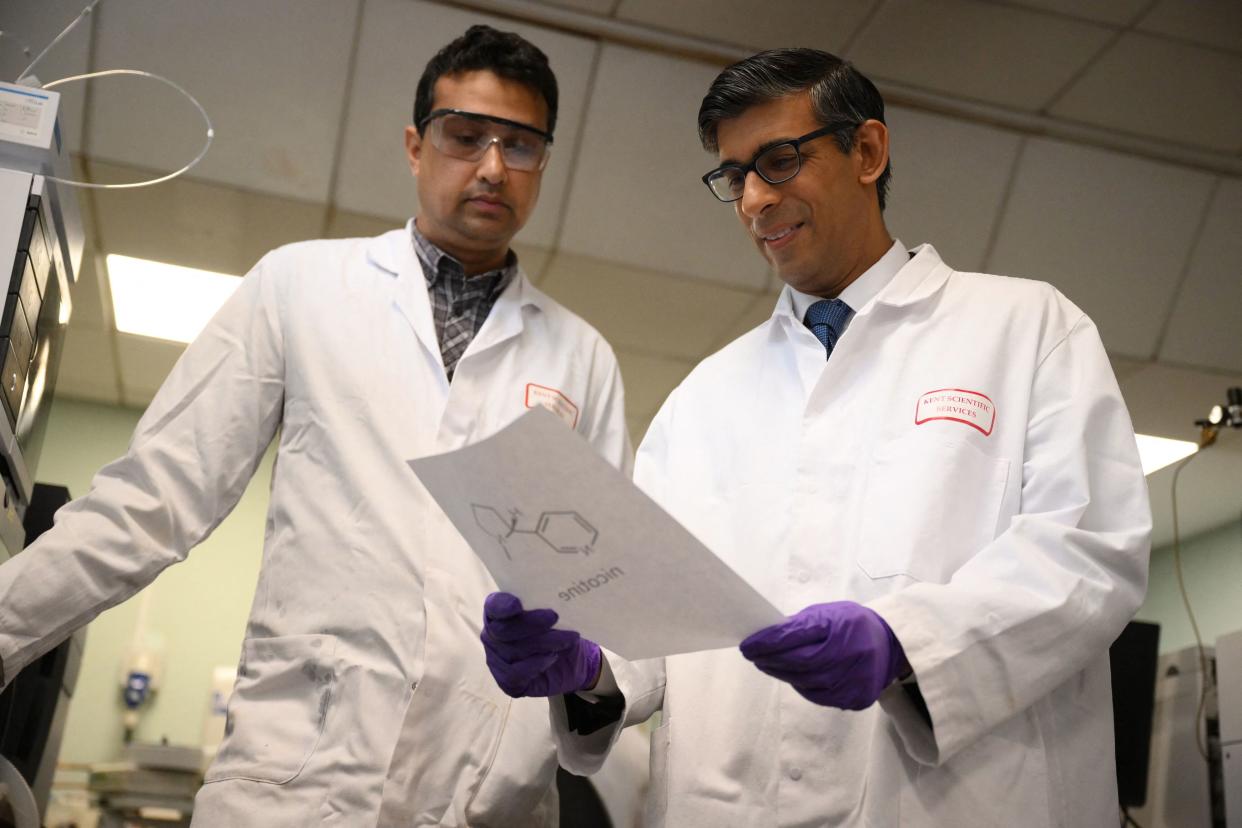UK Back in EU’s Horizon Science Program After Brexit Freeze

(Bloomberg) -- Prime Minister Rishi Sunak gave the go-ahead for the UK to rejoin the European Union’s €95.5 billion ($103 billion) Horizon science program, allowing closer ties between Europe’s top research hubs following a two-year gap because of post-Brexit political wrangling.
Most Read from Bloomberg
Apple’s 2-Day Slide Nears $200 Billion on China IPhone Curbs
Trudeau Says There’s No Room for Political Rapprochement With China
UK researchers can apply for grants and bid to take part in projects under the Horizon program, with certainty that the UK will be participating as a fully associated member for the remaining life of the program to 2027, according to Sunak’s office.
“With a wealth of expertise and experience to bring to the global stage, we have delivered a deal that enables UK scientists to confidently take part in the world’s largest research collaboration program,” Sunak said in a statement. “We have worked with our EU partners to make sure that this is the right deal for the UK, unlocking unparalleled research opportunities, and also the right deal for British taxpayers.”
Britain was one of the biggest beneficiaries of the funding prior to fully leaving the EU at the end of 2020, a step that limited access to the program for its top universities and curtailed collaboration on vital projects. However, the UK was excluded for the past three years because of a disagreement over issues linked to Northern Ireland. Once Sunak brokered a deal, known as the Windsor Framework, negotiations started up again, according to Science Secretary Michelle Donelan.
“The difference with this deal means that we’re really getting value for money, for instance, we’re not paying for the years we weren’t associated for,” Donelan told Times radio Thursday. “Also, we’ve got a claw-back mechanism which means that if there was a situation where we weren’t getting as much out of it as we were putting in, the claw-back mechanism would kick in and we could in effect, get a rebate.”
The UK will also associate to Copernicus, the European Earth Observation program. In line with the preferences of the UK fusion sector, the UK has decided to pursue a domestic fusion energy strategy instead of associating to the EU’s Euratom program, Sunak’s office said. An EU official said the UK will contribute €2.43 billion to Horizon per year and a further €154 million to Copernicus.
The announcement was welcomed by scientists. Adrian Smith, president of the Royal Society, the independent scientific academy of the UK, said in a statement that it is “fantastic news, not just for the UK but for scientists across the EU and for all the people of Europe.”
Vivienne Stern, Chief Executive of Universities UK, told the BBC there would be a “unanimous sigh of colossal relief” from scientists which would allow them to work across geographical borders by drawing funding from a common pot.
--With assistance from Lyubov Pronina.
(Updates with UK contribution in sixth paragraph.)
Most Read from Bloomberg Businessweek
Huawei’s Surprise Phone Gives Ammo to Biden Doubters on China
Lyme Disease Has Exploded, and a New Vaccine Is (Almost) Here
©2023 Bloomberg L.P.

 Yahoo News
Yahoo News 

